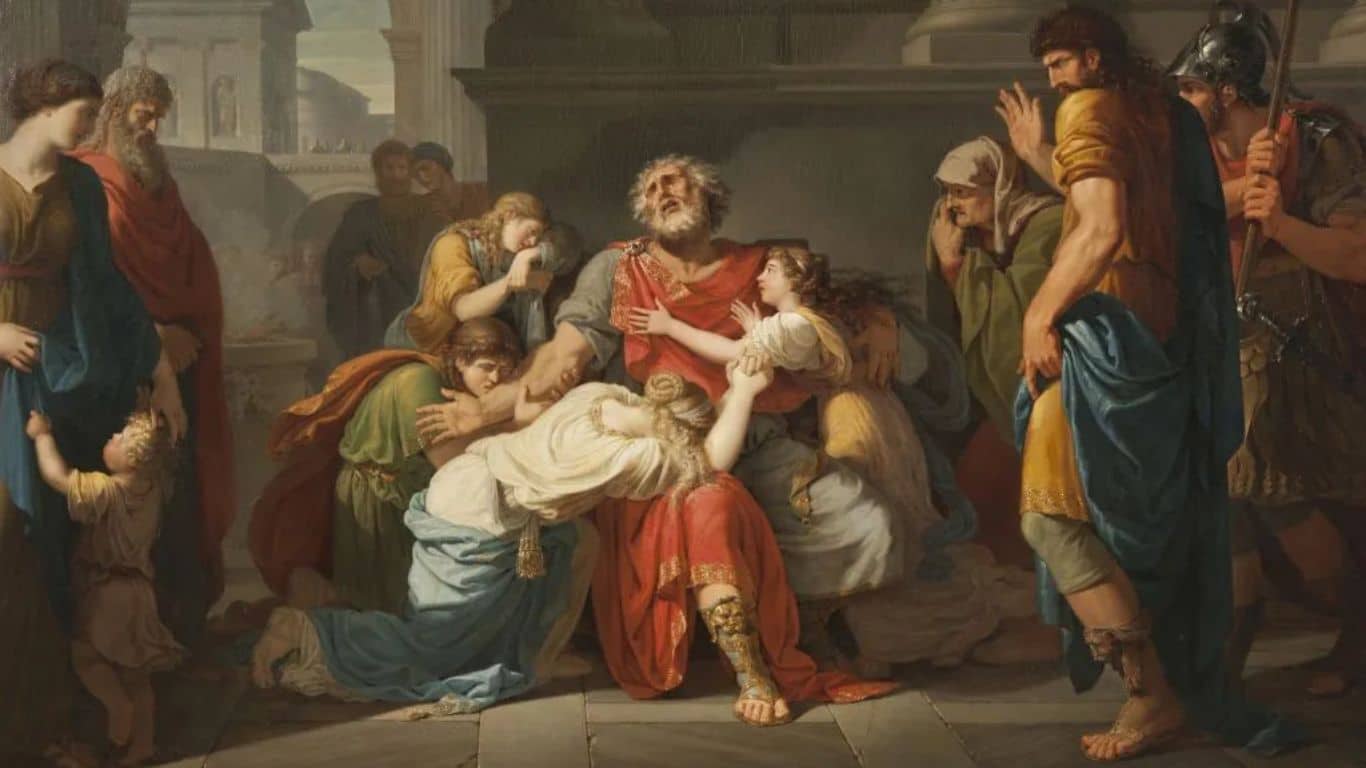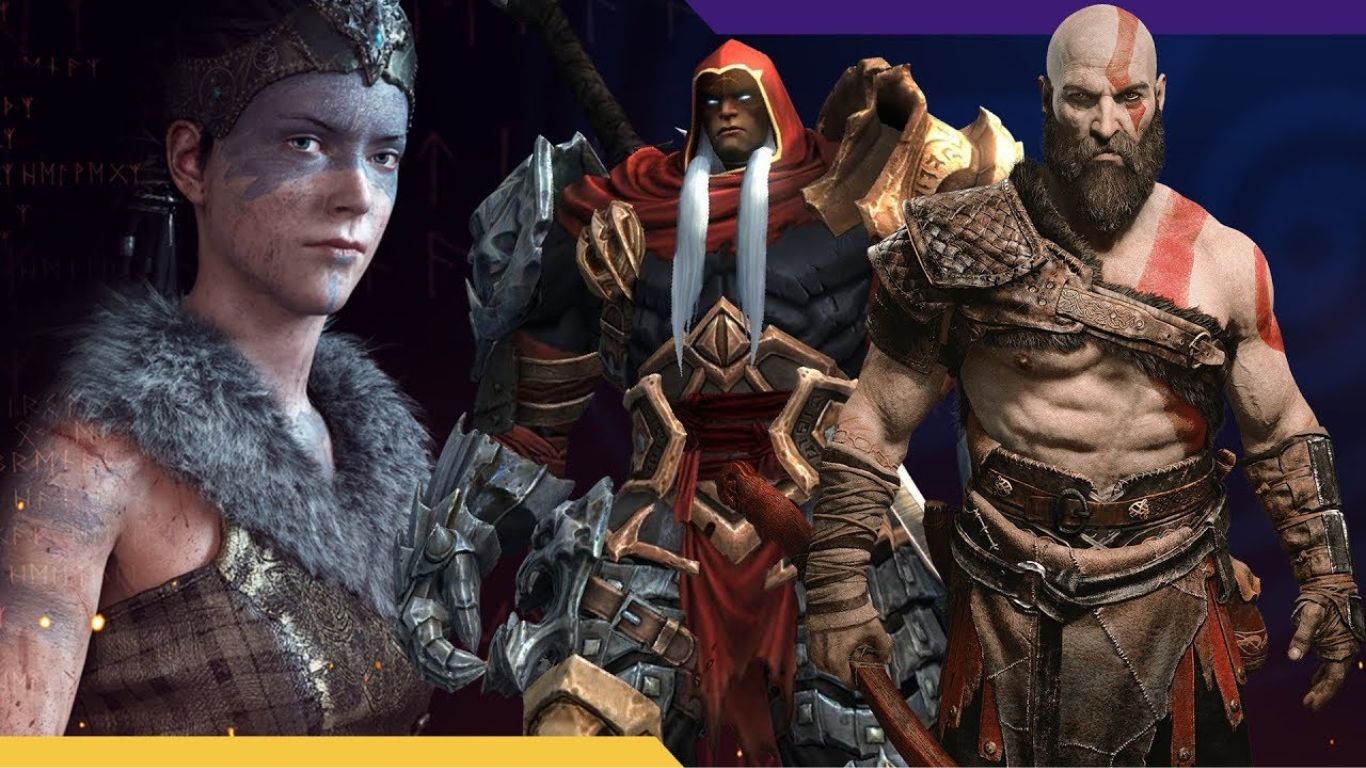Greek mythology’s timeless appeal hinges on more than tales of gods and heroes. Its deep cultural roots, impact on arts and literature, and reflection of human nature ensure it remains relevant today. From Hercules’ strength to Aphrodite’s beauty, these ancient narratives continue to captivate and resonate with us. But why does Greek mythology continue to enchant our modern society? In this article, we extract the 10 Reasons Why Greek Mythology Is Popular. As we explore the influence of these ancient tales that have transcended eons and still grip our collective imagination.
10 Reasons Why Greek Mythology Is Popular
Classic Narratives
Greek mythology, universally appealing, is a treasure trove of captivating narratives. This rich tapestry is spun with tales of epic adventures, where heroes embark on perilous quests, encountering mystical creatures and battling forces that challenge their very existence. Within these myths, a matrix of complex relationships unravels, revealing the intricate web that connects gods, mortals, and mythical creatures. Dramatic conflicts, both mortal and divine, underscore these tales, providing a gripping tension that captivates audiences. From the cunning exploits of Odysseus to the tragic fate of Oedipus, these timeless Stories hold a mirror to humanity, reflecting our deepest fears, hopes, and desires. The allure of Greek mythology lies in these classic narratives, which have endured the test of time, offering endless fascination and inspiration for generations.
Universal Themes

These epic myths in its captivating narrative brilliance, transcends boundaries and eras, striking a chord with people globally through its timeless themes. These narratives explore universal human experiences – love and betrayal, heroism and sacrifice, the dichotomy of good and evil – effectively rendering a mirror into our own lives. Each myth, steeped in layers of profound emotion, unravels tales of lovers defying odds, heroes braving unimaginable trials, sacrifices of the greatest magnitude, and the eternal struggle between opposing forces of good and evil. Despite being thousands of years old, these themes continue to resonate deeply, as they reflect the inherent complexities of the human experience. Greek mythology, thus, transcends time, drawing us into its fold through these universally relevant and poignant themes.
Archetypal Characters
Greek mythology is renowned for introducing archetypal characters, each embodying distinct human characteristics and aspects. These characters are not just narratives but symbols, striking universal chords that resonate across cultures and eras. Zeus, the king of gods, exemplifies power and authority, reinforcing the archetype of the sovereign ruler. Hercules, renowned for his strength and heroic exploits, epitomizes the brave hero overcoming adversity. Medusa, with her terrifying visage, stands as a symbol of danger and the destructive aspects of feminine power. These archetypes, borne of mythology, have permeated literature, art, and popular culture, affirming Greek mythology’s enduring relevance and universal appeal. Such archetypal characters continue to captivate audiences, offering profound insights into human nature and experience.
Influence on Modern Culture

The mythology permeates modern culture profoundly, shaping literature, art, film, and television in countless ways. Its timeless tales are foundational texts for Western narrative tradition, inspiring writers from ancient playwrights to contemporary authors. Similarly, its iconic characters and dramatic scenes have been continually reimagined in the visual arts, from classical sculpture to modern graphic design. In film and TV, Greek myths often serve as the basis for epic adventures, complex dramas, and explorations of human nature. These stories are the bedrock of countless cultural products, be they blockbuster movies, bestselling novels, or hit television series. Thus, Greek mythology is not just a collection of ancient tales but a living, evolving influence that continues to shape our collective imagination.
Foundation of Western Thought
With its vibrant narratives and timeless themes, Greek mythology serves as a cornerstone for Western thought. These myths have significantly influenced philosophy, shaping ideologies around morality, existentialism, and the human condition. In the realm of religion, they provide intriguing paradigms of divinity and the relationship between gods and humans. Furthermore, they’ve substantially impacted intellectual discourse, stimulating debates about power, justice, and the complexities of human nature. This amalgamation of mythology and intellect forms the bedrock of our cultural heritage, creating enduring interest. The captivating tales of Greek gods, goddesses, and mythical creatures resonate profoundly, stimulating our fascination for these archaic yet timeless narratives. Thus, Greek mythology’s imprint on Western thought continues to intrigue, educate, and inspire.
Symbolism and Metaphor

Greek mythology teems with symbolism and metaphor, weaving a rich tapestry of narratives that continue to enchant generations. Each myth, character, and event is symbolic, often representing profound human emotions, universal themes, or elemental forces of nature. These metaphors extend beyond the narratives themselves, offering a platform for interpretations across various disciplines. Psychologists delve into these myths, uncovering insights about human behavior and motivations. Writers and poets draw upon these timeless tales, imbuing their works with depth and resonance. Philosophers use these metaphors as tools for elucidation, exploring complex ideas through the lens of these mythological narratives. Through their diverse applications and interpretations, Greek myths continue to hold a prominent place in global culture.
Roots in Real History
While presenting legendary gods, monsters, and heroes, it also embeds these narratives in actual places and periods, grounding mythology in reality. Myths unfold in well-known locations such as Mount Olympus or the city of Troy, embedding them in tangible, historical contexts. This blend of fact and fiction introduces an engaging dichotomy that allows readers to journey through extraordinary narratives while remaining tethered to a real-world past. Greek myths’ capacity to merge the imaginative and the factual creates a captivating appeal, luring audiences into the fascinating paradox of the mythical reality. This complex interplay keeps these ancient tales relevant, intriguing, and continuously popular among diverse audiences worldwide.
Pedagogical Value

Greek myths possess enduring pedagogical value, serving as powerful educational tools for imparting moral lessons and values across generations. Their timeless narratives offer valuable insights into human nature, ethics, and societal norms. By exploring the triumphs and tribulations of mythical heroes and gods, these stories facilitate discussions on virtues like courage, wisdom, justice, and the consequences of hubris. The allegorical nature of Greek myths allows for meaningful reflections on the complexities of life and the choices we make. Moreover, their archetypal characters and universal themes resonate with learners of all ages, fostering empathy, critical thinking, and cultural understanding. Through the ages, Greek mythology has proved to be an invaluable resource for educators seeking to engage students and instill enduring moral principles that transcend time and cultural boundaries.
Exploration of Human Nature
It delves deep into the intricacies of human nature, offering profound insights into our behavior, emotions, and motivations. These timeless tales explore the complex aspects of the human psyche, revealing universal truths that remain relevant to this day. Whether it’s the hubris of Icarus, the jealousy of Hera, or the pride of Achilles, Greek myths depict the full range of human emotions and flaws. They remind us of our capacity for both greatness and folly, showcasing the consequences of our actions and choices. By examining the triumphs and tragedies of the gods and mortals in Greek mythology, we gain a better understanding of ourselves and the world around us. These narratives provide a mirror through which we can reflect on our own humanity, making Greek mythology an enduring source of fascination and enlightenment.
Endless Adaptability

These timeless tales can be reimagined and reinterpreted across a wide array of media, constantly breathing new life into their narratives. From literature to film, television to theater, and even video games, Greek mythology finds a place in every medium, captivating audiences with fresh perspectives. The adaptability of these myths allows artists, writers, and creators to delve into unexplored angles, add modern twists, and explore contemporary themes while retaining the essence of the original stories. This adaptability ensures that Greek mythology remains relevant and engaging to new generations, maintaining its widespread popularity and cementing its status as a perennial source of inspiration and fascination.
Also Read: Greek Mythology’s Strongest Artifacts – The Ultimate List









